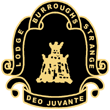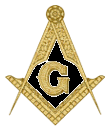
Lodge Burroughs Strange No. 87
Vijayawada, India


Article on Freemasonry - 4
Our Debt to Freemasonry
by R.W.Bro. R. Krishnasamy, O.S.M., P.Dy.G.M.,Deputy Regional Grand Master
Initiation alone never did, not ever can, make a man a true Mason. Initiation only lays the foundation, and without further labour the superstructure cannot be raised. The additional labour is provided by the Initiate himself who, by applying the principles of Freemasonry to all things, great and small, in his everyday life and conduct, raises within himself a superstructure worthy of the Builder. The highest ideal of life is to serve and the highest form of service to masonry is compliance with the laws and regulations, conventions and traditions of Freemasonry, active participation in the work of the Lodge and rendering service to fellow brethren to the best of one's ability. We are all in Masonry's debt to render these services from the moment of our birth as Masons.
All of us are familiar with the Summons we received periodically from our Lodges. Most of us look at it merely as business paper, and do not devote anything more than a passing thought to it. But in reality it is a most interesting Masonic literature, full of inspiration and ideas for those who are eager to serve their Lodges, and fellow brethren. Let us therefore take a closer look at it. The first thing that attracts us as we open the Summons is the Emblem printed at the top of the front page. Every Lodge, at its inaugurations adopts an emblem. It may be a symbol of something of national, local or Masonic interest, or of an abstract virtue. We are all familiar with the emblem of our Grand Lodge. In all Foundation Lodges an explanation of it is given while investing the Master with the Foundation Lodge jewel at his Installation Similarly, every Daughter Lodge may at every Installation explain to the Master and the Brethren the significance of the Lodge emblem and thereby pay a symbolic tribute to the Founders of the Lodge and to those who have passed through the Lodge over the years. This is a debt we owe to our Masonic predecessors. Below the name of the Lodge is printed an extract from the Ancient charges reminding the Brethren of their obligation to attend the Lodge without fail, unless prevented from doing so for reasons which are satisfactory to the Master and Wardens.
The Ancient Charges are several centuries old. The Fraternity had long been in possession of many records containing the ancient laws and regulations of the Craft. In 1772, the Duke of Montagu, the then Grand Master of England, directed that these ancient records should be collected, properly digested and annexed to the Book of Constitutions which was then document under the title of "The Old Charges of the Free and Accepted Masons', constituted, by universal consent, a part of the fundamental laws of our order. These are to be found in pages xi to xvi of our Book of Constitutions. The Charges contain succinct directions for the proper discharges of a Masons duties, in whatever position he may be placed. They from the quintessence of Masonic etiquette. It would be a rewarding experience for every Mason to read these Charges again and again, and it should also be read at least once a year in open Lodge even as the Bylaws are. The Minutes Book of Lodges which were in existence in the early decades of this country reveal that the Ancient Charges used to be read at every meeting.
Freemasonry being a voluntary association of individuals, does not impose compulsory attendance at Lodge meetings. But, as the quotation cited above shows, it has made it a point of honour with members not to absent themselves from meetings. and this should always be respected. The problem of poor attendance at Lodge meetings is universal, and its solution affords unique opportunities of services to Lodges by every brother. In the first half of this century there lived a very distinguished Mason in Madras. He was V. W. Bro. Dewan Bahadur P. M. Sivagnana Mudaliar. He was initiated in the Carnatic Lodge in 1899, ruled over it thrice; was Deputy Dt. Grand Master of Madras continuously for twenty years from 1924 until his death in 1944. His hobby was service to masonry, and especially to his Mother Lodge. he found a practical solution to the problem of poor attendance. he had never missed attending a Lodge meeting in his life, and what is more unique, after every Lodge meeting he used to write in his own beautiful script handwriting letters to every member who was absent at the previous meeting, enquiring about his welfare and about the welfare of his family, hoping that his absence at the meeting was not due to any serious cause, assuring him that the brethren present really missed him at the meeting and were eager to meet him at the next meeting etc. The personal relationship which he thus establish paid rich dividends and the response spontaneous and satisfactory. This was a monumental example of Masonry in action. It may not be possible for every one to emulate this great Mason's selfless service and there is an easier way of achieving the same object. Instead of the Master or Secretary writing stereotyped impersonal letters, which strike no responsive chord in the other, heart, if each member of the Lodge would write intimate personal notes to those members who are residing nearby, inviting them to accompany him to the next meeting, he would be rendering a really great service to his Lodge and the result would be very satisfactory. In this respect, they should be specially considerate towards aged Brethren and those lacking in facilities to attend Lodge regularly. What a beautiful demonstration of Brotherly Love in action would this be The problem of poor attendance can be really solved by Brotherly Love.
Lodges usually prescribe a uniform dress for members at Lodge meetings, and this is mentioned at the foot of the Summons. This should be adhered to under all circumstances. Members should not attend Lodge meetings clothed in unconventional dress but should be decently dressed according to Lodge practice, and the Master would certainly be within his rights to deny admission to those who are not properly clothed. A uniform dress is a symbol of unity, of mental and mortal discipline.
The ancient Symbolical dress of a Master Mason was a yellow jacket with blue breeches, alluding to the brass Compasses with steel points which were assigned to the Master or Grand Master, as governor of the Craft. But the real dress was a plain black coat and breeches, with white waistcoat, stockings, apron and gloves. (Dr. Oliver, quoted by Mackay). The Apron being a part of Lodge dress, it is highly important that every one should be clothed in the Masonic regalia appropriate to his rank.
In the inner pages of the Summons are printed the role of Officers and members. Every Initiate is, in course of time, an aspirant for the Master's Chair. It is a legitimate ambition, but it must be backed by earnestness, enthusiasm and endeavour. The acceptance of an Office in Lodge is a promise of regular attendance and faithful performance of the duties of the offices. It is only by serving in at least all the regular offices that one can hope to become duly qualified to occupy the Master's Chair. From the day an Initiate becomes qualified to own a Ritual book. he should start studying it, and also endeavour to be at least one step ahead of his present office in his studies. If every Officer should be so prepared, what a relief and what a pleasure it would be for the Master to know that he has such a wonderful group of enthusiastic officers to work with.
When once the Master has demonstrated to the Lodge that he can work the Degrees as efficiently as the others, he may invite Past Masters to share with him the ceremonial work. Working a Degree efficiently and impressively is one of the noblest service one can render to his Lodge. The candidate would certainly be impressed very much when he finds three or four Past Masters participating in a Ceremonial work. But the good effect is definitely spoilt if the Master intervenes at every stage and breaks into the continuity of the work to call upon another Brother to do the next portion of the Ceremony. Such intervention is both unnecessary and inelegant. The participating Past Master should be ready to their part of the Ceremony without being called upon by the Master.
It must be really thrilling to the young Mason to go through the names of member who are at the top of the list of members of the Lodges who had been initiated in the Lodge many decades ago, whose faces he had never seen, who are hoary with age and unable to visit the Lodge even once, but whose influence nevertheless pervades the Lodge in all its activities. Will not the fond thought arise in his mind at that moment that he too may become in course of time a legendary figure like them, whom succeeding generations will look up to and admire. It is men like these who keep the spirit of Masonry alive from generation to generation.
I have mentioned here only some of the debts we owe to Masonry. There are many more which the aspirant should discover for himself. Masonry offers very many avenues of service to those who are really interested in serving. After forty-five years of active service to Masonry, I still feel I have not done enough. I hope this random paper will stimulate my younger brethren to render more and more service to their Lodges and fellow brethren. S.M.I.B.
